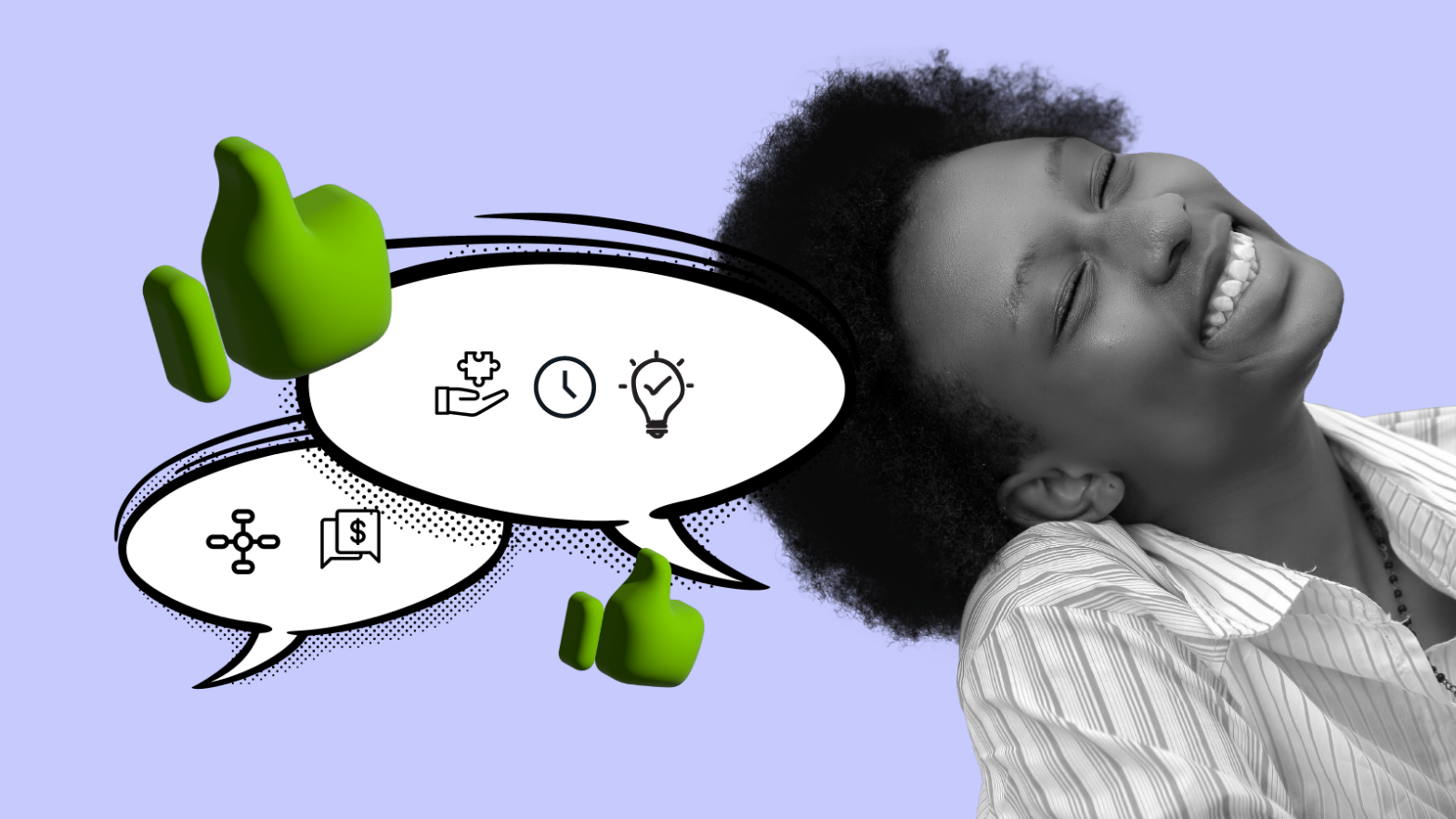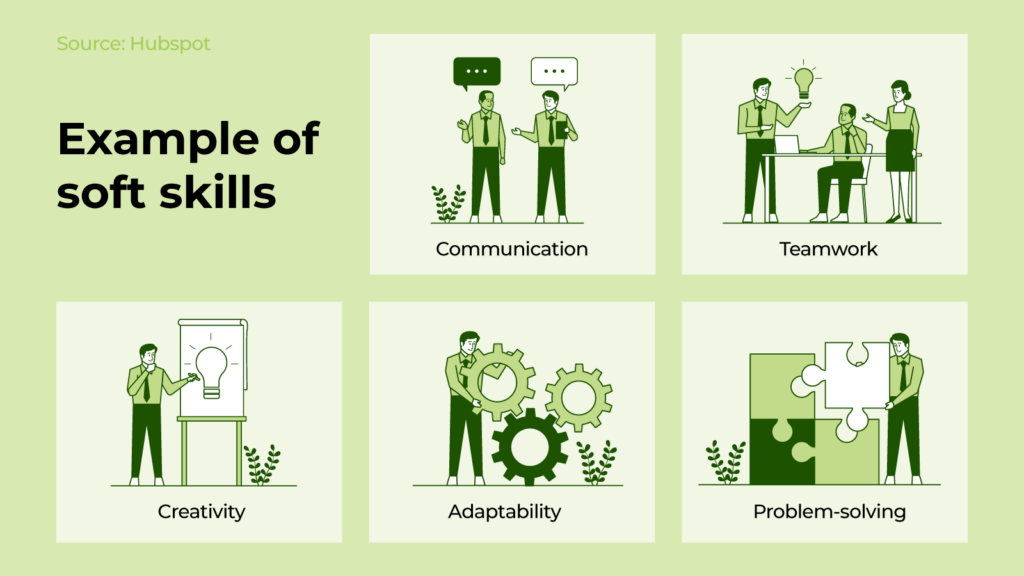The significance of soft skills assessment in a collaborative world

Numerous organizations have successfully carved out a niche for themselves by mastering the technical aspects of their trade, leveraging decades of experience and specialized knowledge in their fields.
Their proficiency in this domain is evident in the products they create, the services they offer, and the reputation they uphold.
However, as they aspire to ascend to even loftier heights of leadership, distinction, and global influence, a crucial puzzle piece often appears missing from their strategic playbook: the candidate’s soft skills alone.
These skills, which encompass facets like effective communication, emotional intelligence, team collaboration, and adaptability, often serve as the intangible glue that binds teams, departments, and entire organizations together.
In the high-stakes game of corporate leadership, while technical prowess can secure a foothold, it’s these soft skills that truly differentiate the good from the great, and the industry leaders from the also-rans.
In the quest for true organizational excellence and influential leadership, embracing and nurturing these soft skills becomes an imperative, not just an option.
Delve deeper into the significant role of soft skills in business growth and how they can be the key to unlocking unparalleled success in leadership development and collaboration.
Unveiling the power of soft skills
Defining soft skills
Soft skills stand for example, in stark contrast to technical or “hard” skills, which are often associated with specific tasks or job functions. While hard skills are crucial and quantifiable, soft skills delve into the more nuanced realms of interpersonal and intrapersonal dynamics.
They embody the competencies that facilitate seamless interaction with others, fostering teamwork, empathy, and effective communication.
Moreover, they also encapsulate the intrapersonal skills necessary for self-awareness, self-regulation, decision making, and adaptability in ever-changing professional landscapes.
As the business world continues to evolve, the significance of these soft skills becomes increasingly important, bridging the gap between mere technical expertise and holistic professional success.
Why soft skills assessment are the backbone of leadership
Technical expertise undoubtedly establishes a manager’s credibility, highlighting their competence in specific fields, skills assessments and tasks. Yet, when it comes to influencing team dynamics and steering leadership effectively, it’s the “soft skills for managers” that truly set the stage for success.
These nuanced abilities, though less tangible than their technical counterparts, play a pivotal role in cultivating understanding and trust among team members.
They serve as the driving force behind team motivation, pushing beyond routine tasks to inspire groundbreaking innovation.

Moreover, soft skills act as the binding agent, melding diverse personalities into a united and collaborative team.
For managers, equipped with these essential soft skills, the challenge of guiding varied talents becomes more manageable and productive, elevating the team from just functional to truly exceptional.
As the modern workplace continues to evolve, emphasizing emotional intelligence and interpersonal acumen, soft skills have transcended from being “nice-to-have” to absolutely indispensable for any aspiring leader.
Soft skills and career advancement
Making an impact beyond the resume
A resume serves as a tangible testament to your qualifications, detailing your achievements, experiences, and competencies. However, beyond the confines of that document lies the expansive realm of interpersonal interactions—be it in meetings, during interviews, or in everyday professional exchanges. In these settings, your soft skills emerge as the real differentiators.
They are the invisible forces that guide your ability to communicate effectively, empathize with colleagues, negotiate with finesse, and adapt to unexpected situations.
More than just qualifications on a page, it’s these nuanced abilities that can transform you from being merely a name amidst a pile of applications to a standout individual who leaves a lasting impression.
In an increasingly interconnected and collaborative professional world, these soft skills enable and elevate your presence, making you not just a participant, but a truly memorable contributor in any setting.
Becoming the go-to leader in the workplace
In the vast arena of professional dynamics, having pronounced soft skills does more than merely cement your role within a team; it amplifies and accentuates your presence.
These integral soft skills, encompassing effective communication, deep-rooted empathy, astute problem-solving, and adept conflict resolution, become your magnet, attracting team members towards you, especially during moments of ambiguity or challenge.
When teammates consistently gravitate towards you, not just for advice, but for clarity, understanding, or even collaborative ventures, it underscores your innate ability to connect, empathize, and instill confidence.
Such interactions highlight more than just your competency; they spotlight your capability to influence, inspire, and galvanize those in your orbit.
In the professional realm, your stature isn’t solely defined by your job title or designated responsibilities. Rather, it’s profoundly shaped by the trust, respect, and credibility you garner through your interpersonal expertise.
Simply put, potent soft skills transcend traditional team dynamics, seamlessly positioning you as an intrinsic leader, a lighthouse providing direction and assurance amidst the complexities of the workplace.
Key soft skills for career advancement
Communication
Effective communication is more than just the transmission of words; it is the pivotal bridge that spans the gap between conceptual ideas and their practical realization.
Mastering the art of clear and effective communication skills is instrumental in ensuring that ideas and visions aren’t diluted or misinterpreted.
Instead, they are conveyed as originally conceptualized, preserving their core essence. Such lucid articulation minimizes the chances of ambiguities that can give rise to misdirection and operational inefficiencies.
Beyond just the transfer of information, adept communication establishes a foundation of transparency, cultivating a space where trust flourishes.
In a work environment that emphasizes teamwork and collaboration, exceptional communication skills are paramount.
They serve as the linchpin for cohesive operations and time management, guaranteeing that all team members are synchronized in their understanding of individual responsibilities, overarching objectives, and the strategies to attain those goals.
Adaptability
In today’s rapidly evolving landscape, possessing essential soft skills is more than just an asset—it’s a necessity. These soft skills assessments extend beyond merely adapting to change; they encompass a robust set of attributes that allow individuals to flourish even in turbulent times.
Adaptability, one of these crucial soft skills, is not just about bending to the winds of change but harnessing them for growth.
It reflects resilience, foresight, and a proactive approach. Adeptly navigating change means identifying emerging trends and proactively adjusting one’s strategies.
Rather than perceiving new scenarios with trepidation, those equipped with essential soft skills see them as opportunities to learn, innovate, and progress.
In such a fluid context, a manager’s repertoire of essential soft skills distinguishes those who simply react from those who seize the reins of their future, transforming challenges into platforms for advancement.
Emotional intelligence
Comprehending and adeptly navigating the realm of emotions, whether it’s your own or those of the people around you, is a skill of significant importance in any professional setting.
When you truly understand emotions, you are equipped to preemptively address concerns and grievances, thereby preventing minor disagreements from escalating into major conflicts.
By managing and responding to these feelings with tact and empathy, you not only address the immediate issue but also cultivate a foundation of trust and respect.
This ability strengthens bonds between colleagues, encouraging open dialogue, communication skills and mutual support.
In the very long term run, these positive interactions culminate in a workplace environment where harmony prevails, collaboration thrives, and individuals feel valued and understood.
Such an atmosphere not only boosts employee satisfaction and morale but also enhances productivity, as team members operate in a setting where their emotional well-being is acknowledged and prioritized.
Problem-solving
Problem-solving skills are not merely about pinpointing challenges; it’s an intricate dance of analytical acumen, innovative thinking, and sheer determination. It begins with the keen ability to identify underlying issues, often hidden beneath layers of complexity.
But recognition is just the starting point. True problem-solving demands the employment of critical thinking—a logical and structured approach to dissecting challenges and weighing potential solutions. Intertwined with this analytical mindset is the need for creativity, where out-of-the-box thinking can often lead to novel solutions that may not be immediately apparent.

And underpinning all these skills is resilience: the tenacity to persist in the face of setbacks, continually refining approaches until a viable solution all the difference is achieved.
This holistic approach to problem-solving skills doesn’t just resolve issues; it propels organizations forward, turning challenges into catalysts for growth and innovation.
Cultivating and managing these skills
Continual self-assessment and reflection
The discipline of regular self-reflection emerges as an invaluable instrument, acting akin to a mirror reflecting our inherent strengths and pinpointing facets that might require further nurturing, especially in the sphere of developing soft skills.
This introspective voyage delves beneath the surface, offering deep insights that reveal our interpersonal competencies and the intrinsic qualities that define our interactions.
Moreover, within this realm of soft skills, critical thinking prowess occupies a pivotal position.
Critical thinking equips us with the aptitude to dissect situations meticulously, forge well-grounded decisions, and tackle challenges through a lens of solution-seeking.
As you engage in a comprehensive soft skills assessment, it paints a vivid picture of the extent to which you’ve refined your critical thinking and identifies areas beckoning for more attention and development.
Armed with this enriched self-awareness, you’re presented with a clear path, delineating the areas deserving concentrated effort to bolster both personal and professional growth.
Recognizing and championing your inherent capabilities can infuse a surge of confidence. Simultaneously, by zeroing in on and remedying gaps in your skill set, you equip yourself with the agility and adaptiveness needed to maneuver through the intricate and constantly evolving corridors of the professional realm.
Incorporating regular soft skills assessments into your personal development strategy is the linchpin to ensuring continuous growth and adaptability.
Seeking feedback
Receiving constructive feedback, whether it’s from colleagues, superiors, hiring managers, peers, or mentors, is a key component in understanding one’s interpersonal strengths and gauging overall employee performance.
Such feedback acts as an external lens, highlighting intricate details and aspects of interactions that might remain obscured in individual introspection.
Incorporating these external evaluations, especially during the interview process, allows for a more rounded and in-depth analysis of one’s ability to communicate, work in teams, and make valuable contributions within a professional environment.
This broader perspective, stemming from a soft skills assessment, illuminates not only the arenas in which one shines but also the areas ripe for growth and enhancement.
In the broader scope of evaluating employee performance, insights garnered from such feedback are invaluable. They foster a culture of continuous improvement, ensuring that employees consistently elevate their skills and contributions.
Furthermore, these assessments underscore the importance of interpersonal competencies, enhancing one’s ability to influence team cohesion and drive organizational success.
Immersive learning experiences
Engaging in specifically designed workshops, immersing oneself in role-playing sessions, and experiencing simulated real-world challenges present unparalleled platforms to sharpen one’s soft skills within a well-defined, supportive framework.
These learning-centric spaces are meticulously crafted to foster skill development. They offer individuals the latitude to explore varied communication strategies, gauge their personality test their depth of emotional intelligence, and grapple with intricate interpersonal dynamics, all while being shielded from the potential repercussions typical of real-world encounters.

Such controlled environments not only serve as testing grounds but also as arenas for refinement. Here, one can obtain instantaneous feedback, recalibrate approaches, and iteratively enhance vital interpersonal skills.
This cycle of practice, feedback, and improvement fortifies both the skill set and the individual’s self-assurance.
As the adage goes, “Practice makes perfect.” Over time, consistent engagement and refinement in these settings cultivate heightened confidence, robust management capabilities, and overall proficiency.
Thus, when eventually confronted with genuine, unscripted challenges beyond this sheltered milieu, individuals find themselves well-prepared, armed with the soft skills assessment tools, and confidence to navigate complexities with grace and efficacy.
Final word
In the quest of career progression, technical skills undoubtedly form the bedrock, providing stability and groundwork. However, it’s the important soft skills that act as the architects, molding and elevating professionals from mere contributors to standout leaders.
These important soft skills—ranging from communication, empathy, and teamwork to adaptability and critical thinking—are the scaffolding that facilitate the ascent to leadership heights and pinnacle of professional excellence.
By actively identifying and nurturing these vital personality traits, you make sure you not only enhance your repertoire but also carve a distinct path for yourself.
Embracing and honing these important soft skills transforms you from being just another cog in the machine to a dynamic leader, steering the direction and shaping the future of the workforce.
Discover how DevSkiller soft skills assessment tools can help you with soft skills management.
Schedule a demo with one of our product experts or watch this quick 5-min demo video to find out more.
FAQs
- Is it possible to develop soft skills later in one’s career?
Absolutely! With dedication, practice, and the right resources, soft skills can be cultivated at any stage of one’s career. - How can organizations support soft skills development?
Organizations can offer training programs, mentorship opportunities, and create an environment that values and promotes interpersonal excellence and encourage soft skills development. - Are soft skills industry-specific?
No, soft skills are universally applicable, transcending specific industries and roles. - How to measure the ROI of soft skills training?
While more intangible than technical skills, the ROI of soft skills training can be gauged through improved team dynamics, increased productivity, and enhanced leadership capabilities. - Do soft skills outweigh technical skills in leadership roles?
Both are vital. However, in leadership roles, the ability to guide, inspire, and collaborate often hinges more on soft skills.
Share post